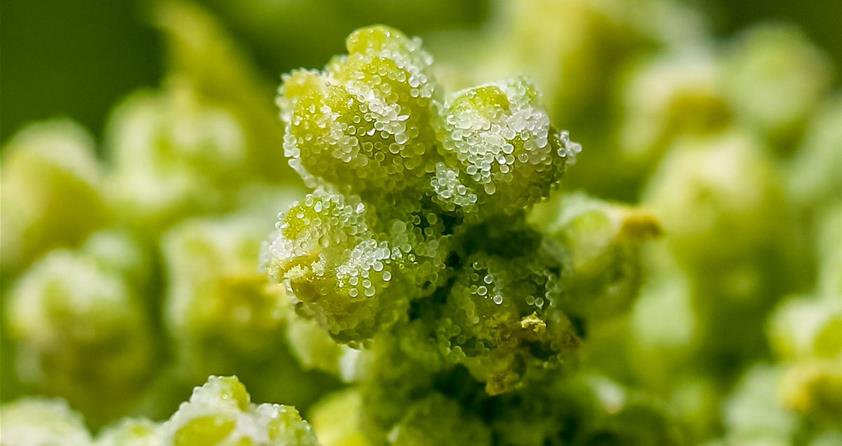Quinoa could hold one of the keys to feeding the world’s growing population because it can thrive in harsh environments and grows well on poor-quality, marginal land.
Now, KAUST researchers have completed the first high-quality sequence of the Chenopodium quinoa genome, and they have begun pinpointing genes that could be manipulated to change the way the plant matures and produces food.
This research was supported by:
- The Analytical Chemistry Core Lab – Staff Scientist Najeh Kharbatia is an author on the study. He developed a method to quantify the contents of saponins in the seeds, a group of compounds that affect the taste of quinoa.
- The Imaging and Characterization Core Lab – Senior Technical Specialist Ohoud Alharbi generated Scanning Electron Microscope images for the research.
- The Greenhouse Core Lab – provided plant care.
The Core Labs are strategically located throughout the academic campus enabling users to transition between labs in a matter of minutes.
Learn more about this paper by reading Quinoa – Quest to Feed the World at KAUST Discovery.

